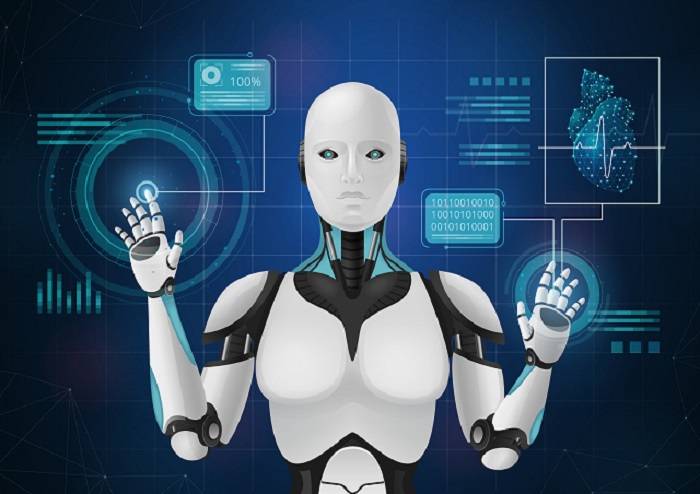The convergence of artificial intelligence (AI) and the pharmaceutical industry has led to significant advancements in drug development, manufacturing, and patient care. AI’s ability to analyze vast amounts of data, identify patterns, and make predictions has revolutionized various aspects of the pharmaceutical sector.
This article explores the pivotal role of AI in drug discovery, clinical trials, manufacturing, and regulatory compliance within the pharmaceutical industry.
Role of Artificial Intelligence in Pharma

Artificial Intelligence (AI) has emerged as a transformative force in the pharmaceutical industry, revolutionizing various aspects of drug discovery, development, and patient care. This summary explores the critical role AI plays in pharma, highlighting its potential to accelerate research, improve efficiency, and enhance patient outcomes.
Also Read: 21 Ways Artificial Intelligence Is Advancing Life Sciences
Utilizing AI in Target Identification
AI algorithms analyze biological data to identify potential drug targets more efficiently. This process accelerates the identification of disease-specific targets and expedites the search for suitable treatments.
Accelerating Drug Screening Processes
By simulating drug interactions with targeted molecules, AI expedites the screening of compounds. This enables researchers to prioritize the most promising candidates, reducing the time and cost of drug development.
Predicting Drug Interactions and Side Effects
AI models can predict potential drug interactions and side effects, which significantly contributes to the early stages of drug development. This leads to improved drug safety profiles and reduces adverse reactions.
Precision Medicine
Personalized Treatment Plans
AI analyzes patient data, including genetic information and lifestyle factors, to create personalized treatment plans. Tailoring treatments to individual patients maximizes efficacy and minimizes side effects.
Predicting Patient Responses
Through machine learning, AI predicts patient responses to specific medications. This helps physicians choose the most effective treatment options for their patients, increasing treatment success rates.
Identifying New Uses for Existing Drugs
AI analyzes vast databases to identify potential alternative uses for existing drugs. This repurposing approach can lead to the discovery of new treatments for different medical conditions.
Reducing Development Costs and Timeframes
Drug repurposing significantly reduces the time and resources required for drug development. Utilizing existing drugs for new indications expedites the path to clinical use.
AI in Clinical Trials
Image: source
Artificial Intelligence (AI) has emerged as a game-changing technology in the realm of clinical trials, revolutionizing the way medical research is conducted. This summary delves into the crucial role AI plays in transforming clinical trials, highlighting its potential to streamline processes, enhance data analysis, and ultimately accelerate the development of new treatments.
Patient Recruitment and Selection
AI-powered algorithms have revolutionized patient recruitment by efficiently identifying eligible participants for clinical trials. By analyzing a multitude of patient data, AI can match potential candidates with specific trial criteria, reducing recruitment timelines and ensuring a more diverse and representative study population.
Monitoring and Data Analysis
AI’s predictive capabilities aid in forecasting patient responses to treatments and identifying potential risks during clinical trials. These insights enable researchers to design more robust protocols and optimize study endpoints, leading to more successful and informative trials.
Adverse Event Detection and Reporting
AI algorithms automatically detect and report adverse events during clinical trials. This early detection allows for timely interventions, enhancing patient safety.
Data Collection and Analysis
AI simplifies the data collection process in clinical trials by automating the extraction and categorization of relevant information from various sources. Furthermore, AI-driven data analysis facilitates real-time monitoring, ensuring data quality and integrity throughout the trial.
Drug Repurposing
AI algorithms play a pivotal role in drug repurposing efforts, identifying existing medications with potential new therapeutic applications. By analyzing vast databases and molecular interactions, AI expedites the discovery of novel uses for approved drugs, saving time and resources in drug development.
Safety Monitoring
AI enhances safety monitoring during clinical trials by continuously analyzing patient data for potential adverse events or safety signals. This proactive approach allows researchers to promptly address safety concerns, ensuring the well-being of trial participants.
Adaptive Trial Design
AI enables adaptive trial design, where protocols can be modified based on accumulating data while the trial is ongoing. This flexibility enhances trial efficiency, as researchers can adjust sample sizes, treatment arms, or endpoints in response to emerging insights, leading to faster and more efficient trials.
Patient-Centric Approaches
AI facilitates patient-centric clinical trials by leveraging patient-generated data from wearable devices and mobile apps. This data provides valuable insights into patient behaviors and treatment responses, leading to more patient-focused trial designs and improved patient engagement.
Regulatory Compliance
AI aids in maintaining regulatory compliance throughout the trial process. By ensuring accurate data collection, analysis, and reporting, AI helps researchers meet stringent regulatory standards and expedites the approval of new treatments.
Drug Manufacturing and Quality Control
Enhancing Efficiency in Production
AI optimizes drug manufacturing processes by predicting production challenges and suggesting process improvements. This results in increased efficiency and reduced manufacturing costs.
Ensuring Product Quality and Safety
AI-powered quality control systems inspect pharmaceutical products, identifying defects and ensuring adherence to regulatory standards. This guarantees product safety and consistency.
AI and Regulatory Compliance
The integration of Artificial Intelligence (AI) in various industries has introduced new opportunities and challenges, especially concerning regulatory compliance. This summary explores the critical role AI plays in ensuring regulatory adherence across sectors and highlights the potential benefits and complexities associated with its implementation.
Image Source: recosenselabs
Streamlining Regulatory Processes
AI simplifies regulatory compliance by automating documentation and submission processes. This reduces administrative burdens and accelerates approval timelines.
Addressing Ethical and Privacy Concerns
As AI integration expands, ethical and privacy concerns arise. Developing frameworks that ensure responsible AI use and data privacy is crucial to maintain public trust.
Challenges and Oversight: Implementing AI in regulatory compliance is not without challenges. Organizations must address technical complexities, data security concerns, and potential risks associated with overreliance on AI. Effective oversight and human intervention remain crucial to ensure AI systems’ decisions align with ethical and legal standards.
Challenges and Limitations of AI in Pharmaceuticals
The rapid integration of Artificial Intelligence (AI) into the pharmaceutical industry has sparked significant advancements and innovations, revolutionizing drug discovery, development, and patient care. AI’s ability to analyze vast datasets, predict outcomes, and optimize processes has shown tremendous promise in accelerating research and improving healthcare outcomes.
However, amid the excitement surrounding AI’s potential, it is crucial to acknowledge the challenges and limitations that this technology faces within the pharmaceutical context.
This introduction explores the key obstacles that AI encounters in the pharmaceutical domain, shedding light on the ethical, technical, and regulatory complexities that demand careful consideration. By understanding and addressing these challenges, the pharmaceutical industry can harness AI’s capabilities more effectively and responsibly, unlocking its full potential in transforming patient care and therapeutic breakthroughs.
Data Privacy and Security
Protecting patient data from breaches and unauthorized access remains a significant challenge in the era of AI.
Integration of AI into Traditional Systems
Integrating AI technologies with existing pharmaceutical systems requires careful planning and seamless adaptation.
Ethical Considerations
Balancing AI’s potential with ethical considerations, such as data ownership and bias, requires continuous scrutiny and responsible decision-making.
The Future of AI in the Pharmaceutical Industry
Soure: Pharma News Intelligence
The future of AI in pharmaceuticals is promising. Continued research and investment will lead to even more groundbreaking applications, transforming the industry’s landscape.
Conclusion
Artificial Intelligence has revolutionized the pharmaceutical industry, offering novel approaches to drug discovery, clinical trials, manufacturing, and regulatory compliance. As AI continues to evolve, it will undoubtedly shape the future of medicine, providing personalized treatments, improving patient outcomes, and ultimately revolutionizing healthcare.
FAQs
How is AI used in drug discovery?
AI is used in drug discovery to identify potential drug targets, accelerate drug screening, and predict drug interactions and side effects.
Can AI improve patient care in the pharmaceutical industry?
Yes, AI can improve patient care by providing personalized treatment plans and predicting patient responses to specific medications.
What is drug repurposing, and how does AI play a role in it?
Drug repurposing involves finding new uses for existing drugs. AI analyzes vast databases to identify potential alternative uses, reducing development costs and timeframes.
How does AI streamline clinical trials?
AI streamlines clinical trials by assisting in patient recruitment, monitoring data analysis, and detecting adverse events, leading to faster and safer trials.
What challenges does AI face in the pharmaceutical industry?
AI faces challenges related to data privacy and security, integration into traditional systems, and ethical considerations surrounding its use.
Further Reading
Validation vs Qualification in Pharmaceutical Industry
GXP Infrastructure Qualification: Ensuring Compliance and Efficiency
Common Gmp Compliance Issues In Pharmaceutical Industry
Comprehensive Guide to Pharmaceutical Process Validation
The Role of CMC Consultants in Drug Development [Guide]
Quality Management System: Improve Your Organization’s Performance
Cleanroom Validation & IQ OQ PQ Qualifications Complete Guide





